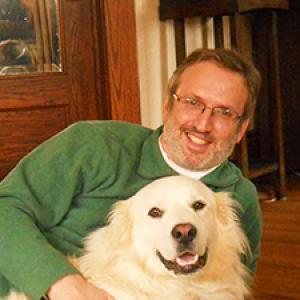
Mark Berkson
Mark Berkson is Professor and Chair in the Department of Religion at Hamline University. He teaches courses in Asian religions (including the Confucian, Daoist, Buddhist and Hindu traditions), Islam, and comparative religion. Mark received his PhD from Stanford University in Religious Studies, his MA from Stanford University in East Asian Studies, and his BA from Princeton University. Mark’s scholarly work has addressed topics such as Confucian and Daoist thought, death and dying, religion and non-human animals, and interfaith dialogue. His work has been published in numerous books and journals. He has released two lecture series with the Great Courses - "Cultural Literacy for Religion" and "Death, Dying and the Afterlife: Lessons from World Cultures."
I teach courses in East and South Asian religions, Islam, and comparative religion. I believe that in order to deeply understand any religious tradition or phenomenon, one must bring in many disciplinary perspectives. Most of my courses include perspectives from multiple disciplines within the liberal arts, such as philosophy, anthropology, psychology, and music. At the same time, I locate myself in the tradition of the Humanities, which means that I focus on a deep engagement with texts (from ancient scriptures to contemporary literature) and aim to help students cultivate skills in textual interpretation, critical thinking, and written and oral communication. While drawing heavily on the social sciences, I ultimately emphasize the humanistic approach of 1) focusing on the way religious individuals and communities have understood themselves, their traditions, and their world; 2) trying to gain, as far as possible, an imaginative insider’s perspective of religious traditions; and 3) reflecting deeply on issues of meaning, purpose and value. We in the religion department identify ourselves as “scholar-practitioners” who strive to combine personal commitment and practice within our religious traditions with scholarly rigor and critical inquiry. I want students to approach each tradition they study appreciatively, seeing what is powerful and compelling, and also critically, examining the tensions and blind spots within traditions.
“I believe that religious traditions should be approached not merely as objects of analysis, but also as challenges to be experienced subjectively. I am trying to facilitate the kind of encounter that can act as a catalyst to a deepening self-understanding. The comparative study of religions can accomplish this task in a uniquely powerful way. A deep, open encounter with another tradition can expose the false fixities of one’s own way of living and thinking. It can call into question one’s most deeply held assumptions and engender intellectual and spiritual exploration and growth.”
-Mark Berkson
